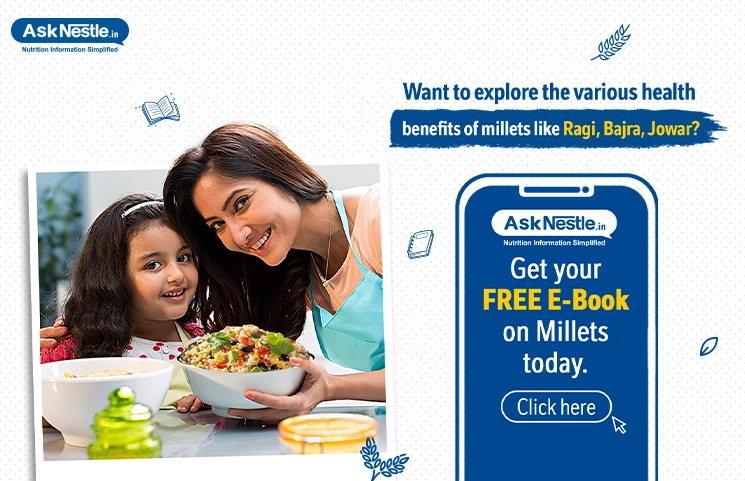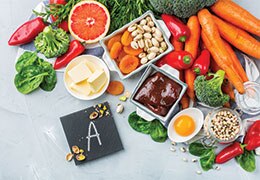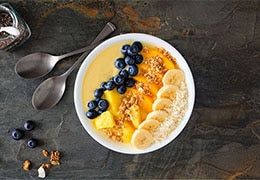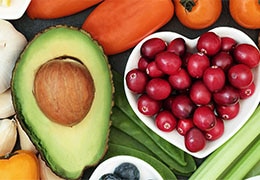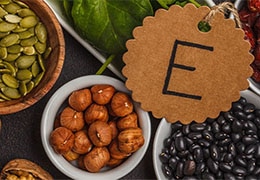Discover the importance of vitamin K nutrients in your body. From green veggies dairy delights, don’t miss out on these tasty and vitamin K-rich foods that play a crucial role in various bodily functions.
Vitamin K is a true multitasking nutrient that plays a major role in many biological functions. As a member of the group of fat-soluble vitamins, it's necessary for proper blood clotting and coagulation, which is why it's dubbed "K" after the German term"Koagulation." However, vitamin K also has significant bone-building functions and can help prevent chronic diseases such as heart disease, osteoporosis, and other metabolic disorders. Therefore, embracing a vitamin K-rich diet is crucial to staying healthy. In this article, we’ll explore various vitamin K-rich foods that will enhance overall well-being and bring a burst of vitality to your plate.
Which Foods Contain vitamin K?
Vitamin K, a fat-soluble vitamin, is present in various foods. The main vitamin K sources are leafy vegetables, nuts, seeds and oil. Vitamin K can help you maintain good bone and heart health, and promotes cell growth and brain health. The following are 12 Vitamin K-rich foods along with their daily recommended dietary allowance (RDA):
1. Amaranth leaves, green
- Vitamin K: 221.5µg per 50g
- RDA: 402.7 % per 50g
- Amaranth leaves are the highest source of vitamin K and are known for their positive impact on osteoblasts (bone-forming cells) and osteocalcin (protein in bones), promoting optimal health.
- Recipe: Amaranth Thoran
2. Drumstick leaves (Moringa)
- Vitamin K: 239µg per 50g
- RDA: 435.4 % per 50g
- Recipe: Lentil Dal Moringa Soup
- Apart from being loaded with vitamin K, Moringa leaves offer an array of health benefits encompassing anti-diabetic, antibacterial, anti-cancer, and anti-inflammatory properties.
3. Spinach
- Vitamin K: 162.5µg per 50g
- RDA: 295.45 % per 50g
- Spinach is packed with vitamin K, carotene (a precursor of vitamin A), ascorbic acid, and various minerals. Studies show its antioxidants may have protective effects against liver disease.
- Recipe: Palak Curry (Spinach Gravy)
4. Jowar
- Vitamin K: 13.1µg per 30g
- RDA: 23.7 % per 30g
- Jowar is a staple millet found in most Indian kitchens and contains significant amounts of vitamin K.It is also packed with fiber and protein, making it a healthy addition to your diet.
- Recipe: Jowar Thalipeeth
5. Soya bean, brown
- Vitamin K: 13.74µg per 30g
- RDA: 24.98 % per 30g
- Soybeans are rich in vitamin K, a crucial element in activating osteocalcin, a protein found in bones. Regular consumption of soybeans and soy products is advantageous for maintaining strong bones and preventing osteoporosis
- Recipe: Soy Bean Potato Vegetable
6. Red gram, whole, toor dal
- Vitamin K: 27.5µg per 30g
- RDA: 50.19 % per 30g
- Red grams are a staple in many households and can easily be incorporated into your daily diet.
- They also contain a good amount of protein, iron and other nutrients, making it a healthy option.
- Recipe: Surati Dal (Sweet & Sour Red Gram Dal)
7. Egg yolk
- Vitamin K: 9.0µg per 20g
- RDA: 16.47 % per 20g
- Egg yolk is an easily available source of vitamin K. It’s also packed with vitamin E and vitamin B1, calcium and iron.
- Recipe: Poached Egg
8. Chicken
- Vitamin K: 28.17µg per 100g
- RDA: 51.13 % per 100g
- Vitamin K2-7 menaquinone, found in animal-based products like chicken offers health benefits for people with osteoporosis, cardiovascular disease, inflammation, cancer, Alzheimer's disease, diabetes, and peripheral neuropathy.
- Recipe: Hot Thai Chicken Wings
9. Pumpkin, orange
- Vitamin K: 41.85µg per 50g
- RDA: 75.95% per 50g
- Pumpkins contain a significant amount of vitamin K. They’re also loaded with vitamin A, which is beneficial for good vision.
- Carrot and Pumpkin Soup
10. Gingelly seeds, white
- Vitamin K: 10.6µg per 10g
- RDA: 19.2% per 10g
- Sesame seeds are packed with vitamin K, protein, vitamin B1, and dietary fiber. They also boast impressive amounts of phosphorous, iron, magnesium, calcium, manganese, copper, and zinc. Sesame seeds also contain sesamin and sesamolin, two unique substances with antioxidant properties.
- Recipe: Sesame Pumpkin Millet Paratha
11. Garden cress, seed
- Vitamin K: 2.4µg per 10g
- RDA: 4.4% per 10g
- These seeds possess abundant vitamin K, along with protein, fat, calcium, and iron and boast impressive nutritional value. They are recognized for their abilities to combat cancer, diabetes, asthma, and diarrhea.
- Recipe: Halim Kheer
12. Walnuts
- Vitamin K: 8.4µg per 10g
- RDA: 15.4% per 10g
- Consuming walnuts is an easy way to get a good amount of vitamin K. Walnut consumption is also linked to numerous health benefits, such as lower risks of cardiovascular disease (CVD), coronary heart disease, type II diabetes, and improved aging and cancer risk.
- Recipe: Spinach Walnut Salad
Before making significant changes to your diet or taking vitamin supplements, it is advisable to consult with a healthcare practitioner to ensure it aligns with your individual health needs and conditions.
Conclusion
In the pursuit of a well-balanced nutritious diet, understanding the diverse array of vitamin K-rich foods is very important. From vibrant vegetables to crunchy nuts and seeds, you’ll find many options that are both delicious and healthy. By incorporating these foods into your daily meals while keeping your daily intake requirements in mind, you can ensure that your body receives the Vitamin K it needs for optimal health.
